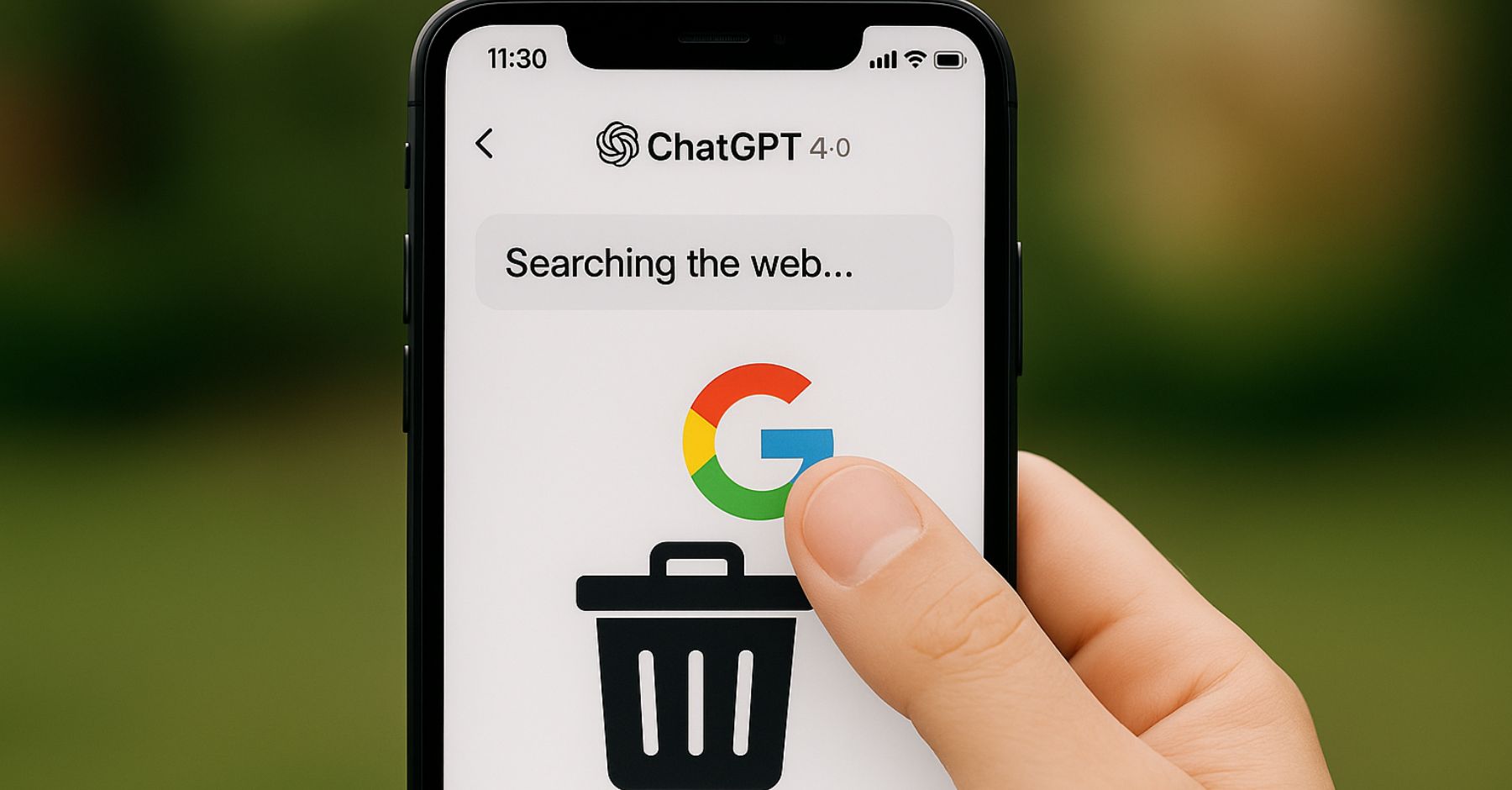Each week we’ll gather headlines and tips to keep you current with how generative AI affects PR and the world at large. If you have ideas on how to improve the newsletter, let us know!
What You Should Know
OpenAI Takes Aim at Google. Again.
When OpenAI launched ChatGPT Search last fall, it was a shot across the bow at Google. Several reviews and think pieces suggested that Google’s dominance was over. That anecdotal evidence showed the start of a trend, but the impact hasn’t been staggering. At least not yet.
Google searches grew more than 20% in 2024, with more than 14 billion searches per day — more than 373 times more than ChatGPT. Semrush data shows Google is still the undisputed leader in web traffic — it had more than 142 billion web visits in February, more than 25 times more than ChatGPT. However, ChatGPT Search’s popularity is rising fast, and people use it a bit differently than Google, with more natural language than keywords.
Now, OpenAI is encroaching on Google’s turf a bit more. On Monday, the company announced “several improvements” to ChatGPT Search, including the ability to search within WhatsApp, improved citations, and a shopping function. OpenAI pointed out that, unlike Google, product results aren’t ads. (There is speculation that ads will come to ChatGPT’s free version next year.)
The ChatGPT Search updates lead to a question brands even outside of retail want answered: How do we get included in AI-generated search results?
This practice is known most commonly as generative engine optimization (GEO), though you might see several other acronyms. It essentially modernizes and adapts search engine optimization (SEO) practices for large language models. GEO is still in its early days and an inexact science, but it’s largely similar to SEO — answer questions your target audience is likely to ask, create authoritative, trustworthy, valuable content, and, frankly, do SEO well. It also helps if your brand is everywhere, something a strong PR program can help achieve. But if you’re struggling to rank in Google or Bing, don’t expect to show up in generative engines like ChatGPT Search.
In a blog post, OpenAI shared one more nugget that was geared toward retailers, but applies to companies across the board: Ensure you haven’t opted out of OpenAI’s search crawler, OAI-SearchBot. Many publishers have installed blockers to keep that web crawler from scraping their content, so as not to inform the next round of training material. However, the company says OAI-SearchBot is only used to surface websites in ChatGPT’s search features and doesn’t use the content to train its models.
As ChatGPT Search sharpens its edge, communicators can help their brands surface by optimizing content for natural-language queries; creating high-quality, relevant, distinctive content that ranks well in search engines; ensuring OAI-SearchBot access; and pursuing contributed content, mentions, reviews, and citations across influential media. Give AI the context it needs, and you have a better chance of showing up in the AI tools audiences are increasingly using.
Elsewhere …
- Topics That Win with Media at RSAC, Based on 3 Years of Data
- Welcome to Chat Haus, the Coworking Space for AI Chatbots
- Meta’s ChatGPT Competitor Shows How Your Friends Use AI
- Generative AI Is Not Replacing Jobs or Hurting Wages at all, Say Economists
- OpenAI Rolls Out a ‘Lightweight’ Version of Deep Research Tool
Tips and Tricks
 No more Mr. Nice Guy
No more Mr. Nice Guy
What’s happening: You may have noticed OpenAI made some updates to ChatGPT’s 4o model. It is…well…a bit of a suck-up. The company’s CEO, Sam Altman, posted that its personality has become “sycophant-y and annoying,” and OpenAI is working on a fix.
Why it matters: If you don’t want to wait for the fix and you’d prefer a more critical eye for any tasks you’re looking to complete, you’re not alone.
Try this: TechRadar recently ran a story on how one user prompted ChatGPT to change its personality to be less fluffy. Here’s how the user developed a workaround:
“Can you please store a memory to permanently stop commenting on the quality and validity of my questions and simply get to the point? I don’t want to be manipulated with flattery by a robot, and I don’t want to have to skip past the garbage to get to the answer l’m looking for.”
Quote of the Week
“AI is already changing how work gets done. It’s not a question of if or when. It’s happening now. When there’s a shift this big, the worst thing you can do is wait. In 2012, we bet on mobile. While others were focused on mobile companion apps for websites, we decided to build mobile-first because we saw it was the future. That decision helped us win the 2013 iPhone App of the Year and unlocked the organic word-of-mouth growth that followed.
“Betting on mobile made all the difference. We’re making a similar call now, and this time the platform shift is AI.”
— Luis von Ahn, CEO of Duolingo, in an “all-hands email” the company posted on LinkedIn
How Was This Newsletter?



